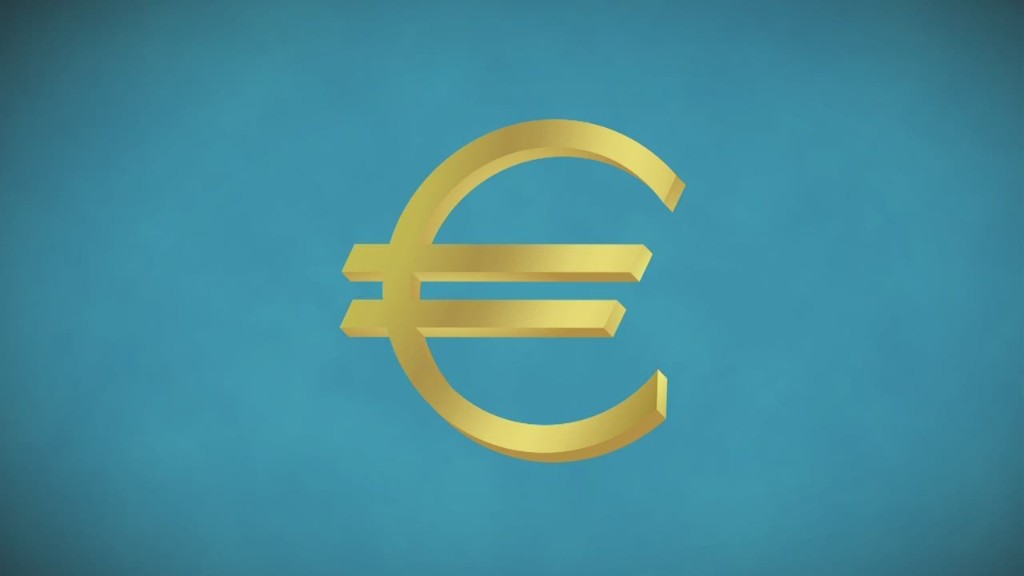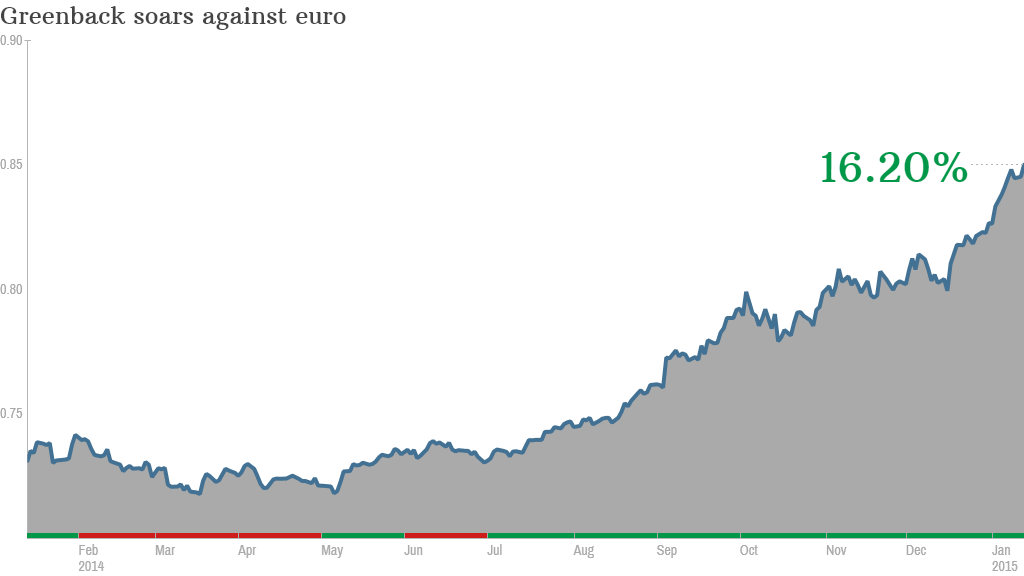
The U.S. dollar is looking pretty mighty these days.
Thanks to the resurgent American economy, the greenback has strengthened significantly in recent months against almost every other currency.
That's especially true compared with the euro, which is getting slammed by gloomy growth in the eurozone.
Now Goldman Sachs (GS) believes the U.S. dollar will catch up to the euro and the two currencies will be about equal by the end of next year.
That's a dramatic turnaround considering €1 bought you $1.60 back in July 2008. The two currencies haven't been equal since late 2002. Currently €1 fetches $1.18 in the international markets -- a much better rate for any American traveling to Europe.
"It's a combination of good things here and bad things there," said Marc Chandler, global head of currency strategy at Brown Brothers Harriman.
Related: 3 reasons the euro is plunging
Europe's rescue plan will hurt the euro: The euro weakness makes sense given the continent's economic struggles. Growth has been virtually nonexistent and unemployment is stuck near record highs.
Things have gotten so bad in the eurozone that consumer prices fell in December, marking the first bout of deflation since the Great Recession.
Now the European Central Bank is poised to launch a new stimulus program. While that program could boost the economy, it's also likely to depress the euro's value further, at least initially.
Goldman Sachs predicted the euro will drop to $1.08 at the end of 2015 and trade at parity with the dollar by the end of 2016. The euro could even fall below the dollar beyond that.

"It could go to parity if the European Central Bank really pumps up stimulus. That would be a landmark event," said Paul Christopher, head of international strategy at the Wells Fargo Investment Institute.
Related: Europena stocks will outrun Wall Street in 2015
Resurgent America: All of this stands in great contrast to the U.S., where the economy may not be perfect but is suddenly humming along at a very healthy pace.
Growth kicked into high gear last year, with the economy growing at an incredible rate of 5% during the third quarter. Last year also marked the best year of jobs growth for the U.S. since 1999.
And while the ECB is ramping up stimulus, the Federal Reserve is doing the opposite. Its bond-buying program ended last year and now the Fed is preparing to slowly raise interest rates. That's a big positive for the greenback.
Related: Oil will never return to $100, says Saudi prince
Cheaper trips to Europe? The dollar's resurgence against the euro could be good news for American tourists traveling to top destinations like Paris or Barcelona. Their dollars should go a lot further than five years ago.
Then again airfare, the biggest cost of a transatlantic trip, hasn't come down despite the oil crash. And many hotels and tourist hotspots will likely adjust their prices to reflect the currency fluctuations.
That said, the stronger dollar isn't great news for big multinational companies like General Electric (GE) that do lots of business overseas. These corporate giants get shafted when they exchange revenue earned abroad back into dollars.
Related: The strong dollar hurts these companies
High-end retailer Tiffany & Co (TIF). is already blaming the strong dollar for its weak holiday sales.
But smart companies should have seen the stronger dollar coming and mitigated this risk through careful hedging strategies, Chandler said.
"We've got crocodile tears for them. When the dollar is weak they won't say it really helped them. They'll say it was 'good strategy,'" he said.


